Having scoured our bookshelves and studying our docents on their top choices, we've thought of our picks for the 10 best books set in Beijing. From a shocking homicide riddle to one artist's life account, these Beijing books offer rocker going through charming stories.
Midnight in Peking .
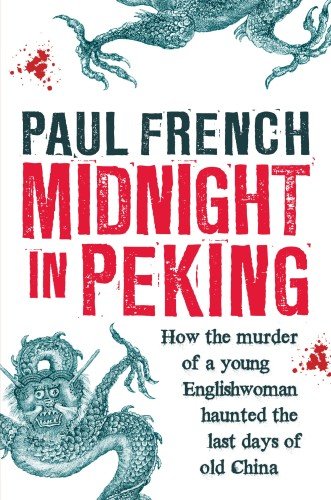
A most loved of mine and of docent Jeremiah Jenne's, British expat Paul French's grasping genuine whodunit is the ideal read for the five-hour prepare ride from Shanghai to Beijing. The story of Pamela Werner's abhorrent 1937 murder is so rich in detail, so transportive, thus captivating that you won't have the capacity to put the book down. In spite of the fact that it peruses like fiction, Midnight in Peking depends on a genuine story—one that Jeremiah suggests as "an awesome read before heading into Beijing's old legation quarter," only south of Tiananmen Square.
Remote Babes in Beijing
This true to life book influences the cut as a lite, interesting to take a gander at one Columbia graduate's turn as the sultry white face of a Chinese cleanser musical drama. In 1995, Rachel DeWoskin went to Beijing to work at a PR firm however soon ended up featuring in Foreign Babes in Beijing, a TV arrangement that played to an expected 600 million watchers. Somewhere close to a journal and chick-lit, DeWoskin's story is her transitioning story scattered with pictures of individuals she meets in Beijing and her encounters in the capital as China experienced colossal monetary change and social movements.
The Last Days of Old Beijing
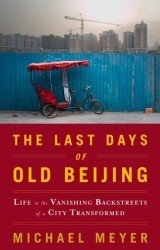 .
.
Writer Michael Meyer's first book was prescribed to us by our inhabitant Great Wall master David Spindler and docent Jeremiah Jenne. Meyer put in a year living in a hutong only south of Qianmen [south of Tiananmen Square], "chronicling how urban recharging and redevelopment is influencing the occupants of Beijing's old neighborhoods." Spindler depicts the book as "an incredible training about the hutongs." Meyer skillfully paints representations of his neighbors and appearing through these characters and his examination that the sort of network found in the hutongs can't be imitated in the new development that is assuming control.
Playing for Thrills
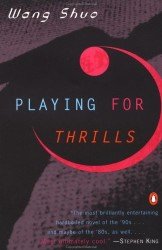
Docent Misha Tadd prescribes Wang Shuo's Beijing-set noir, a murder story that pulls the peruser through the capital's shabby underbelly. The plot will be natural to kill puzzle devotees—tainted screw-up hunting down reality and equity—however terrible kid Wang Shuo is a long way from your run of the mill soft cover author. Misha says, "The interpreter is the well known Howard Goldblatt who helped Mo Yan get his Nobel Prize, which ensures an abnormal state of English."
Mao's Last Dancer
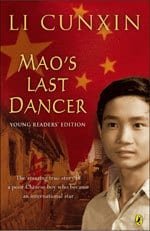
Li Cunxin's personal history was distributed in 2003 and made into a film in 2009; it is the twelfth most noteworthy netting Australian film ever. Li Cunxin was naturally introduced to a poor family in country Shandong Province however goes to Beijing to try out for Madame Mao's Dance Academy. Admitted to the school, he puts in the following six years in tiresome preparing, inevitably being sent to another country to the US. While there, he starts to scrutinize the Communist Party standards and rapidly goes gaga for an American ballet dancer. The story has an upbeat completion however not without passionate strife and, however Mao's Last Dancer is in reality a life account, it peruses like the best of fiction.
Inheritances: A Chinese Mosaic
Lord's characters.
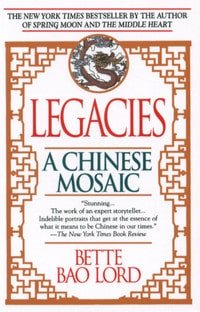
Bette Bao Lord was conceived in China, brought up in the U.S., and came back to China as the spouse of the American envoy in the late 1980s. Part diary and part character vignettes, Legacies happens crosswise over China, with a few sections set in Beijing. Docent Misha Tadd suggests it as a "capable accumulation of stories," and in reality it is, addressing real occasions like the Cultural Revolution and The Great Leap Forward, yet as they identified with Bao
Rickshaw
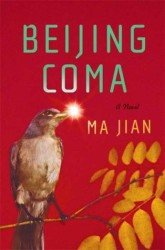
Lao She's eighth book is viewed as a cutting edge Chinese great, converted into English by J.M. James. Over a time of five years in 1930s Peking, Rickshaw takes after rickshaw puller Xiang Zi through a politically and socially unpredictable time in Beijing. Despite the fact that the interpretation has rendered it a genuinely straightforward read, the book is dim and more profound than it shows up at first glance, making it an absolute necessity for anybody with a distinct fascination in the lives of standard Pekingers.
Beijing Coma

Mama Jian has for quite some time been a vocal faultfinder of China's decision party and started composing Beijing Coma while showing Chinese writing in Germany. The book is extraordinary, a peer inside the brain of hero Dai Wei, who has been in a state of insensibility for 10 years in the wake of being shot in the head at the Tiananmen Square challenges. In Dai Wei's recollections, we travel from his adolescence amid the finish of the Cultural Revolution to his understudy a very long time at Beijing University, straight up to the minutes prior to the shooting. The book was interpreted by Ma Jian's accomplice, Flora Drew, with whom he lives in London.
Serve the People
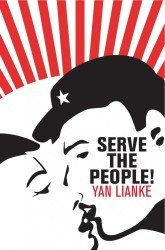
Yan Lianke's sultry novel is set in 1967 and recounts the account of an undertaking between family hireling Wu Dawang and Liu Lian, the spouse of a Communist gathering leader. The book takes its name from a Mao-period political trademark; in Yan Lianke's book, Liu Lian discloses to Wu Dawang that whenver she evacuates her Serve the People! sign from its hanging place, he should serve her. This is Yan Lianke's first novel to be converted into English (done by Julia Lovell, who likewise chipped away at Lust, Caution), and was beforehand restricted in China.
The Uninvited
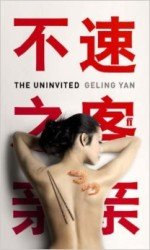
Creator Geling Yang has a remarkable foundation. Conceived in Shanghai, at 14 she turned into an artist with the People's Liberation Army and after that, in 1979, a war journalist covering the Sino-Vietnamese war. In 1989, she was banished from China and has lived from that point forward in the U.S. The Uninvited, which she wrote in English, is a comic drama of blunders, an impactful take a gander at mixed up character in contemporary China. Devastated assembly line laborer Dan Dong, whose righteous spouse Little Plum is his ethical thwart, answers an occupation promoting for a security protect. Mixed up as a writer, he's sent to a dinner where he's given hongbao, a red envelope loaded down with cash. With a heap of business cards, Dan Dong eats his way from meal to feast, trading in for spendable dough and eating great, however soon keeps running into a large group of issues.!